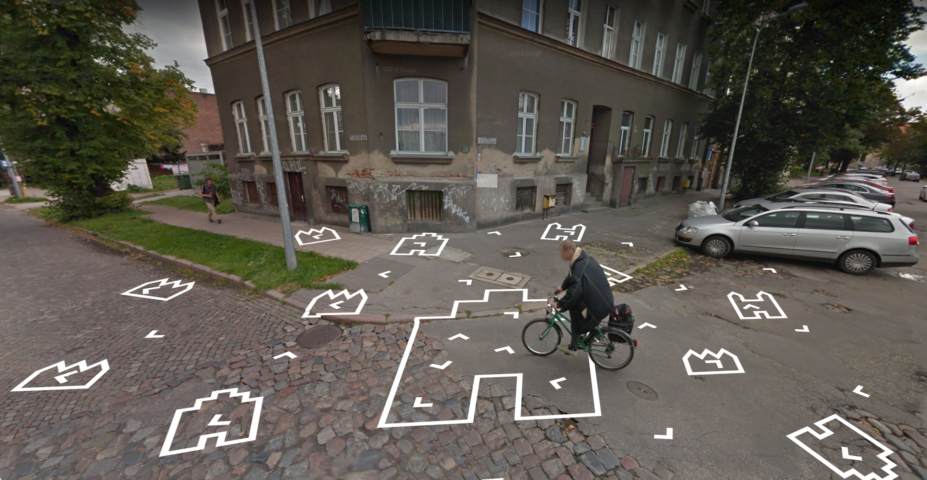 Tools and methods
Tools and methods
- Cultural planning phase: Implementation, mapping
- Purpose Information, participation, communication
- Participants: Artists, residents, officials, all age groups
- Number of participants: 5-20
- Author
Traffic Design, City Culture Institute
Tools and methods
Changes, changes
When it is useful
We have created a visual code to inform residents about expected changes in the neighbourhood space – new investments, road and pavement repairs, and the revitalisation of buildings and parks. Attractive graphic markings will appear on the surface of the street or pavement in the given location. The campaign is accompanied by posters informing about the purpose and nature of the investment. We obtain data on places that are about to change in cooperation with units representing the municipal authorities that run revitalisation programmes, public-private partnerships and new investments. The visual code is a tool for cooperation and communication between the authorities, the cultural sector and the residents. It informs about the neighbourhood's future plans In a completely different, unofficial and unexpected way. Applied in many places, it simultaneously maps the changes that will shape the future of the neighbourhood, allows us to see their scale, and imagine their impact on a specific space. It complements official communication and documentation, which is difficult for many interested groups to access. Residents can also be involved in marking changes based on a design provided by graphic designers, so that the action has a more community-based character.

Step by step instruction
- Find out what places in the neighbourhood are about to change – contact the authorities responsible for investments and urban planning, and private investors.
- Invite local artists to design a code system or use the attached projects created by Traffic Design
- Agree with investors and officials where you can place information in the urban space. (Be aware of local regulations and road safety).
- Invite a group of residents to cooperate.
- Decide how you are going to apply the signs on the surface – the materials should either be non-permanent or easy to remove (special tape, washable paints).

Downloadable materials

